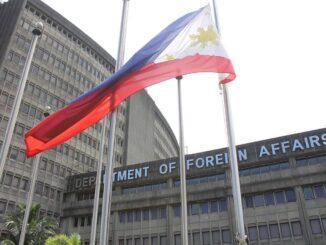
MANILA, Philippines — The United States and the Philippines held their first Cyber-Digital Policy Dialogue to advance an open, interoperable, reliable and secure information and communication technologies (ICT) ecosystem.
Information and Communications Technology Secretary Ivan John Uy and US Ambassador at large for cyberspace and digital policy Nathaniel Fick led the inaugural US-Philippines Cyber-Digital Policy Dialogue in Washington on July 15 and 16.
An open, interoperable, reliable and secure ICT ecosystem will support the growth of the digital economy and strengthen resilience to cybersecurity threats.
During the dialogue, Fick and Uy underscored their countries’ shared interest in advancing bilateral and regional cooperation on cyber capacity building, supporting the growth of the digital economy and combating cybercrime following the Philippines’ recent admission to the International Counter Ransomware Initiative.
They also committed to hold further discussions on the protection of critical infrastructure against malicious cyber activity and enhanced collaboration between their respective national Computer Emergency Response Teams.
“Cybersecurity stands as a paramount global challenge, demanding unified efforts, collective intelligence and steadfast solidarity. The partnership between the United States and the Philippines serves as an exemplar of effective collaboration essential for combating these evolving threats,” Uy said.
Flick, for his part, said, “This first US-Philippines Cyber-Digital Policy Dialogue was an opportunity to discuss our important bilateral efforts to strengthen cyber security and our digital economy and to protect government information systems that are a critical backbone of our alliance.”
Both sides agreed to pursue joint efforts on the development of fifth generation (5G) networks and open, interoperable and trusted architectures such as Open Radio Access Network (Open RAN); secure and reliable global undersea cable networks and digital connectivity and inclusion through cloud computing and satellite-based solutions.
Other commitments made during the dialogue include ensuring the trusted flow of data across borders; deepening collaboration through the Global Cross-Border Privacy Rules Forum to facilitate interoperability among data protection and privacy frameworks globally; strengthening cooperation through the ASEAN Digital Ministers’ and Senior Officials’ meetings and fostering investments for secure and resilient ICT infrastructure.
Both countries also discussed the importance of upholding and implementing the United Nations Framework of Responsible State Behavior in Cyberspace as well as continued implementation of cyber confidence building measures.





Be the first to comment